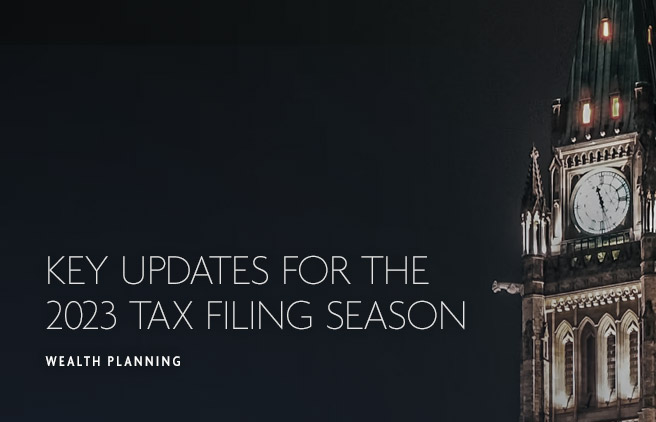Tax season is upon us, and this year brings a slew of changes you’ll want to be on top of to avoid any surprises. From thinner income tax packages to new deductions and credits, the Canadian Revenue Agency (CRA) is mixing a few things up for 2023. Whether you’re a tradesperson, a first-time homebuyer, or just looking to get your taxes done right, this blog has got you covered with all the big changes you need to know for the 2023 tax filing period. So, let’s dive in and demystify what’s new, what’s out, and what these changes mean for you.
Thinner Income Tax Package
In a move to reduce paper use and support environmental sustainability, the CRA’s paper tax packages are slimming down. Gone are the days of detailed line-by-line instructions in your tax package; starting in 2024, these will be a thing of the past, cutting down paper use by about 20%. For those who relied on these instructions, it’s time to embrace digital resources or seek assistance from tax professionals.
Automatic Advanced Canada Workers Benefit
Say goodbye to the hassle of Form RC201 if you received the Canada workers benefit last year. In a bid to simplify the process, these payments will now be made automatically. This change aims to ensure that those eligible receive their benefits promptly without the extra paperwork.
Increased Deduction for Tools
Tradespersons and apprentice mechanics, rejoice! The maximum employment deduction for eligible tools has doubled to $1,000 starting in 2023. This increase acknowledges the essential role of trades in our economy and the significant costs associated with purchasing the tools of the trade.
COVID-19 Benefit Repayments Deduction
For those who are repaying federal, provincial, or territorial COVID-19 benefits, there’s some relief. Repayments made in 2023 can now be deducted on line 23200 of your 2023 return. This consideration helps ease the financial burden of repaying these vital benefits.
First Home Savings Account (FHSA)
The FHSA is a shiny new savings plan for first-time homebuyers. Contributions to this account are deductible, and qualifying withdrawals to buy your first home are tax-free. This initiative aims to make homeownership more accessible for the next generation of Canadians.
Multigenerational Home Renovation Tax Credit (MHRTC)
In a nod to the importance of family care, the MHRTC offers a refundable tax credit for renovations that create secondary units for seniors or adults eligible for the disability tax credit. With a maximum credit of $7,500, this initiative supports families looking to keep their loved ones close.
Home Office Expenses
The temporary flat rate method for claiming home office expenses is no more. In 2023, employees must revert to the detailed method and secure a signed Form T2200 from their employer. While this means a bit more paperwork, it ensures that claims accurately reflect your work-from-home expenses.
Residential Property Flipping Rule
In an effort to cool the housing market, profits from the sale of a housing unit owned for less than 365 days will now be considered business income, subject to a few exceptions for life events. This rule targets speculative property flipping, aiming to stabilize housing prices.
Trust Reporting Requirements
New rules requiring more trusts to file tax returns aim at increasing transparency around asset ownership. These changes affect a wide range of individuals and businesses, potentially exposing them to penalties for non-compliance. It’s crucial to understand if these rules apply to you, especially with the new focus on bare trust arrangements.
Unexpected Exposure – Bare Trust Arrangements
Bare trust arrangements, where assets are held by one party on behalf of another, now fall under these expanded rules. This change could impact many Canadians, such as parents owning homes with their children or joint bank accounts between generations. It’s essential to assess your situation and understand your filing obligations.
The consequences of non-compliance are significant, so head over here to learn how to navigate the new trust reporting requirements in Canada.
Important Dates
- February 19, 2024 – This is the first day you can start filing your 2023 tax return online. If you file on paper, you should receive your income tax package in the mail by this date.
- April 30, 2024 – This is the deadline for most Canadians to file a tax return. By filing your tax return on time, you’ll avoid delays to any refund, benefit, or credit payments you may be entitled to. If you owe money to the CRA, this is also the payment deadline. You’ll avoid late-filing penalties and interest by filing and paying on time.
- June 15, 2024 – If you or your spouse or common-law partner are self-employed, this is the deadline to file your tax returns. As this date falls on a Saturday, your return will be considered filed on time if the CRA receives it or it is postmarked on or before June 17, 2024. If you owe money to the CRA, you’ll still need to pay by April 30, 2024, to avoid interest.
As we navigate these updates together, remember, staying informed is your best tool for a smooth tax season. If you have questions, we’re here to help.


